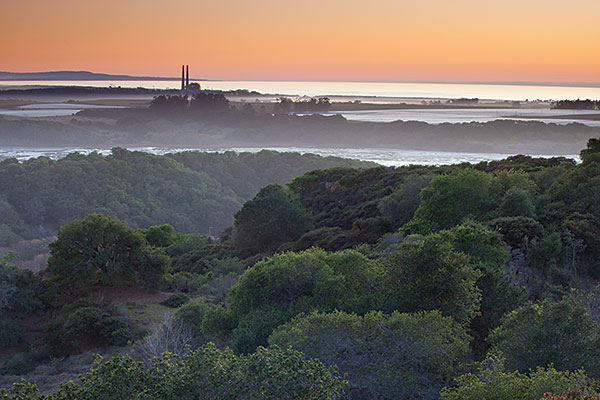|
Conservation Issues of the Ventana Chapter | monterey county
Crude Oil Train Rail Spur Extension Project Final EIR to be Released Soon
May, 2016
 The Elkhorn Slough National Estuarine Research Reserve, a 1700-acre Reserve of tidal creeks, freshwater marshes and verdant oak woodlands at Sunset. (Photo: Paul Zaretsky, courtesy of the Elkhorn Slough Foundation). Sierra Club and other environmental groups locally and statewide oppose a Phillips 66 proposal which could bring mile-long oil trains carrying millions of gallons of Canadian tar sands crude from San Francisco through Monterey County near Elkhorn Slough to San Luis Obispo County.
On May 16, a motion at the San Luis Obispo Planning Commission to deny the project failed 3-2 signaling the possibility of approval at the next hearing scheduled for September 22. At that time, the commission will consider the terms of approval for the project, including a requirement that it be limited to three trains a week instead of the currently proposed 5 times a week each carrying 2.2 million gallons of crude oil.
The FEIR describes the project as a 6,915-foot eastward extension of an existing rail spur off of the Union Pacific rail mainline, a crude oil railcar unloading facility, pipeline, emergency access road, and other support infrastructure at the Phillips 66 Nipomo Mesa Refinery. The oil company says it needs the rail spur to keep the refinery and its 200 jobs operating.
The Monterey County Board of Supervisors led by Supervisor John Phillips whose district includes Elkhorn Slough voted to direct staff to write a letter to the county officials in San Luis Obispo in December opposing the Phillips 66 project. Some areas of the tracks in the Slough are underwater during part of the year and could create hazardous conditions.
With a 40-fold increase in crude-by-rail since 2008, derailments and spills have also been on a steep rise. In 2013 more crude oil was spilled from trains than in the previous four decades combined, and in 2014 there were more oil train accidents than in any other year on record.
A final decision by the Planning Commission in favor of the project will almost certainly be appealed to the Board of Supervisors. There have been hundreds of letters and public comments opposing it including Sierra Club.
< back to all issues
|

